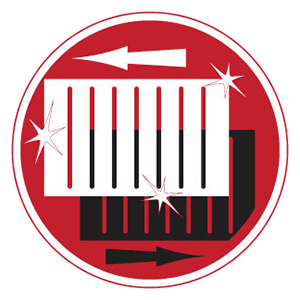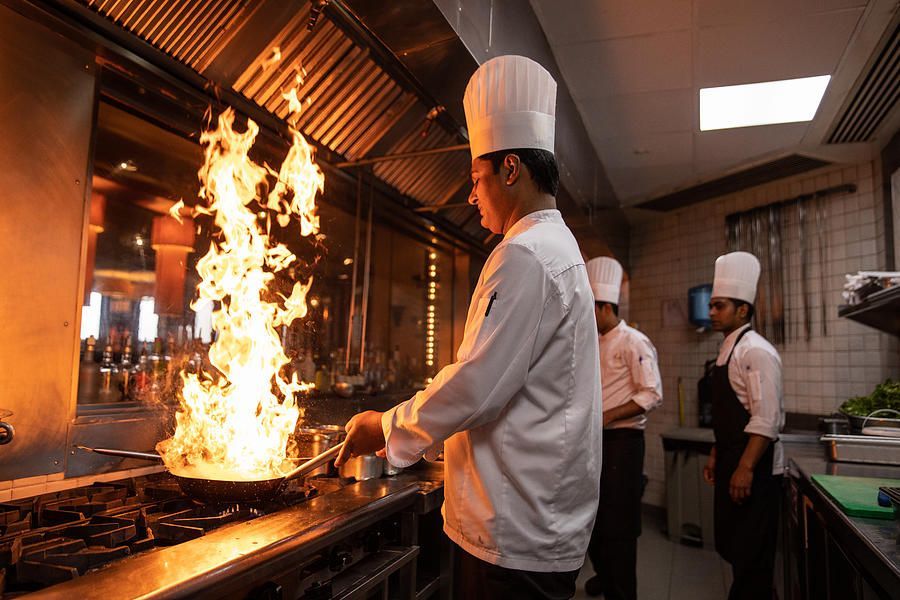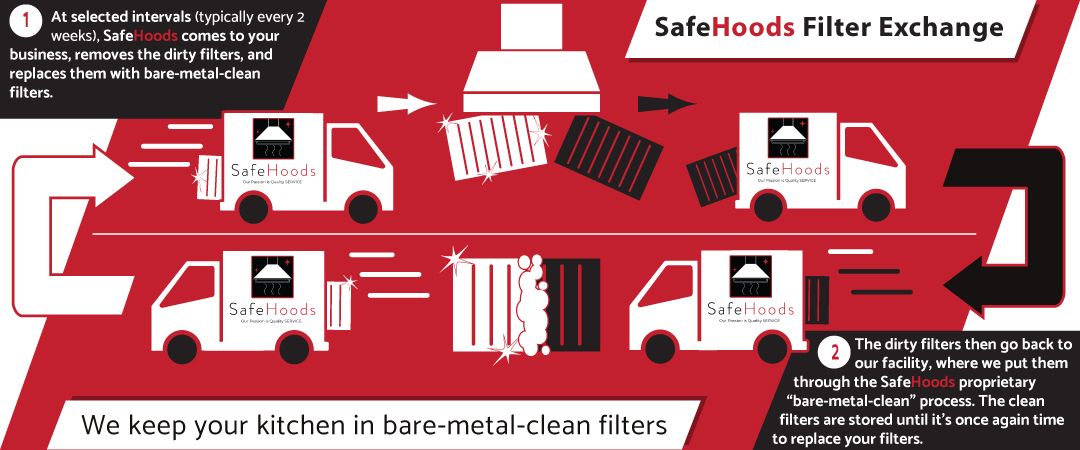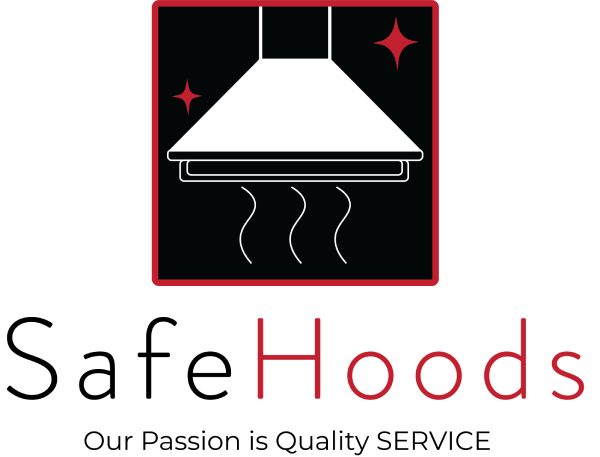
Never again clean, repair, or replace filters. We do it all for you.
Your front line defense against kitchen fires deserves professional care. With SafeHoods Filter Exchange Program, you'll receive bare-metal-clean filters on a regular schedule, allowing you to focus on running your business.

What is the Filter Exchange Program?
For a monthly fee, SafeHoods regularly visits your restaurant (typically every 2 weeks) and quickly swaps your dirty filters with bare-metal-clean ones. We take the dirty filters to our facility where we use specialized equipment to clean them to bare metal, sanitize, repair and replace as needed, then store them until your next service call.
How It Works

Why is it important?
Bare-Metal-Clean Makes a Difference
"Bare-metal-clean" means the entire filter—both visible exterior and non-visible interior—is completely free of all fats, oils, and grease (FOG). This level of cleanliness dramatically reduces fire risk, optimizes hood performance, and maintains a professional appearance.
In-House Cleaning Falls Short
Without specialized equipment, in-house filter cleaning rarely achieves bare-metal-clean results. These cleaning efforts are often inconsistent and ineffective.
Benefits
Fire Prevention
Dirty filters are a recipe for disaster. Bare-metal-clean filters dramatically reduce your risk of fire.
Optimal Hood Performance
A hood system without properly cleaned filters can't operate as designed, resulting in poor air flow and unnecessary strain on fan motors.
Professional Appearance
Shiny, uniform, perfect-fit filters reflect your high standards to both staff and customers.
Environmental Safety
Bare-metal-clean filters reduce air impurities (including carbon monoxide, hazardous steam, smoke, mold, and mildew), prevent contaminants from damaging walls and ceilings, and reduce heat and unpleasant smells.
MAKING A DECISION
Questions to ask yourself
Is your frontline fire defense as strong as it can be?
If your filters are not getting bare-metal-clean, i.e. there are no fats, oils, or grease (FOG) left on any surface after cleaning, inside and out, then you are at increased fire risk. FOG in dirty filters is often ignited by cooking flames and this is where most restaurant fires begin.
Are your kitchen filters beautiful?
Filters that are uniform, shiny, undamaged, fit perfectly and are bare-metal-clean tell your staff and customers that you run a clean and safe kitchen. Customers remember what they see of the kitchen, and staff work ethic can be positively influenced by surroundings that are well cared for.
Can in-house cleaning be effective if done regularly?
Without specialized equipment, in-house filter cleaning rarely results in safe and beautiful filters (that is bare-metal-clean filters). Common in-house methods of soaking, scrubbing and dishwasher cycles are ineffective because water is not hot enough and doesn’t stay hot, standard chemicals are not strong enough, and cleaning cycles are usually not lengthy enough or regular enough. The result is that the fats, oils and grease (FOG) are never fully penetrated and loosened, leaving a layer of FOG that is hardened and added to upon the next cooking cycle, making it even more difficult to remove. Over time, you will have to entirely replace the filters because they cannot be cleaned, and meanwhile your filters are dangerous and unsightly.
What are the costs of in-house cleaning?
Direct dollar costs of in-house filter cleaning include labor, power, water and chemicals. There are also indirect costs in the form of risk to staff: burns, chemical exposure, falls on slippery floors, injury from climbing on appliances. Additionally, due to the innate ineffectiveness of in-house cleaning, there are costs associated with unnecessary wear and tear on capital equipment: hood systems have to work harder, greasy waste-water clogs dishwashers and plumbing, and airborne contaminants damage walls and ceilings over time.
Ready to Get Started?
Contact SafeHoods today to learn more or schedule your first filter exchange.
